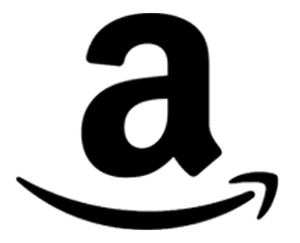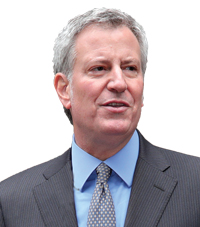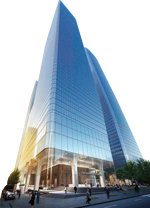 Ever since Amazon announced last fall that it was looking for a new location for a second headquarters, aptly dubbed HQ2, North American cities have been tripping over themselves to woo the retail giant.
Ever since Amazon announced last fall that it was looking for a new location for a second headquarters, aptly dubbed HQ2, North American cities have been tripping over themselves to woo the retail giant.
But opinions differ on what the $5 billion Amazon campus would mean for residential prices, congestion and the local economy more broadly. And some have characterized the competition as a carefully orchestrated bidding war to win tax breaks and other concessions. One anonymous group likened it to a “Hunger Games”-style death match.
In NYC, Mayor Bill de Blasio seems to have dual opinions on the value of HQ2: On the one hand, his administration submitted a bid that included four possible locations for the campus, but on the other he called Amazon (and other online retailers that compete with local stores) “very destructive to communities.”
Still, after the company weeded through 238 submissions, NYC made Amazon’s short list of 20 finalists in late January, when the retail giant also reportedly began making discreet visits to some locations. Amazon, which estimates that the campus will be home to 50,000 employees, is expected to announce the winning city this year.
Some have noted that Amazon is less likely to make an economic dent in NYC — which has touted its growing tech economy — than it would in a smaller city. Jeff Holzmann, of social network investment platform iintoo Investments, said HQ2’s effect would be “almost negligible” here. And not everyone considers the Big Apple a serious contender, since “housing costs are a big challenge for the New York region,” Zillow’s senior economist, Aaron Terrazas, noted. At right is a rundown of Amazon trivia and what its HQ2 could mean for whoever snags it.
$38B
The amount Amazon estimates it contributed to Seattle’s economy directly and indirectly between 2010 and 2016. That included capital investment of nearly $4 billion, roughly $25 billion in pay for its staff and $43 million for public transportation as part of an employee benefit.
5

The number of personal homes Jeff Bezos — whose net worth is pegged at $112 billion — owns nationwide. Those include a Manhattan apartment at 25 Central Park West; two Beverly Hills mansions; a home in Medina, Washington; a Texas ranch; and a converted Washington, D.C., museum.
$768B
Amazon’s monster valuation as of last month. That was the second-highest valuation — behind Apple’s $889 billion — of any U.S. company. It also surpassed Google parent Alphabet’s $763 billion for the first time. One analysis predicted Amazon would be worth $1 trillion by the end of the year. By comparison, WeWork is valued at more than $20 billion, and Zillow was just valued at about $10 billion.
$7B
The value of the incentives offered by Newark, New Jersey. That was reportedly the most generous package offered — by far. Amazon’s RFP stated that financial sweeteners would be “significant factors” in its decision. Newark has the highest poverty rate of any city on the shortlist.
3

The number of shortlisted cities, including NYC, not offering Amazon any beyond-standard tax breaks. The city’s bid includes four areas — Manhattan’s West Side, Lower Manhattan, Long Island City and Brooklyn’s Tech Triangle (which includes Dumbo, Downtown and the Brooklyn Navy Yard) — that could accommodate HQ2.
$187,600
The median value of housing in Atlanta, according to Zillow’s metro home value index. A survey of experts conducted by the website named Atlanta and Northern Virginia as the most likely locations to win the HQ2. The Georgia city is not only undergoing a revival, it also ponied up $1 billion in incentives. Virginia, meanwhile, offers proximity to Washington lawmakers.
1.3M sq. ft.

The space Amazon has recently taken in NYC. That includes a 15-year lease at Brookfield Property Partners’ under-construction megaproject Five Manhattan West, a 122,000-square-foot office at 2 Herald Square on West 34th Street and an 855,000-square-foot distribution center on Staten Island.
$750K
The median price of a single-family home in the Seattle metro area. In January, the region logged its 14th consecutive month as the U.S. city with strongest price growth, according to the Case-Shiller Index. Housing prices in Seattle have doubled since Amazon arrived.
